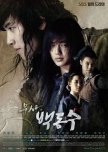
Epic and action are by a humorous ribbon tied together in a touching, gripping way. Go for it!
Set in a jaunty kaleidoscope of relationships, friendships, brothers in arms, blood ties, loyalty, heroism and heartbreak, the time of King Yeongjo, Crown Prince Sado and King Jeongjo is epicly (for a 2011 series production) portrayed."Warrior Baek Dong Soo" is full of fun, martial arts and of course: drama. There is politics, too, yes, butteh KDrama is definitely more on the drama and action side. I benevolently ignored some daring storytelling details and the selectively very optimistic choreographic freedom in the heroic staging. "Warrior Baek Dong Soo" balances between history and entertainment, between epic scope and personal tragedy, between deep, dramatic emotionality and airy, playful, humorous, good mood. The KDrama finds a rousing swell, in which the emotional waves are allowed to splash from all directions - with a story that sails between historically memorable facts, legendary heroes, steep (but by no means absurd) hypotheses, and colorful dramaturgical freedom. It offers great entertainment thanks to an exceptionally strong presence of all actors - whether young or old.
Baek Dong-soo himself is wonderfully portrayed by Yoo Jin-goo (young) and Ji Chang-wook (adult) in the sense of a largely impulsive jester who wears his heart on his sleeve. On the other hand, there is the introverted, somehow tragic, always serious and withdrawn Yeo Woon (Yoo Seung-ho as an adult and Park Gun-woo as a boy). The demanding life of the young warriors is sweetened by the unique charms of Hwang Jin-joo (cheeky, tomboyish: Yoon So-yi) and Yoo Ji-sun (stoic, reserved: Shin Hyun-bin). The by now veteran acting legend Choi Min-su as assassin lord in gothic style gives his very personal flavor throughout the 29-episodes long ride through time. And quite a few more there are.
In this KDrama it is rather the dramatic love story and love triangle of the older generation that pushes itself emotionally to the fore than that of the younger generation. This is probably due to the fact that Baek Dong-soo's generation is more dominated by humor and a cheeky mouth that wants to take on fate, while the older generation is dominated by the decades-long heavy burden of overwhelming life experience.
The historical hook of "Warrior Baek Dong Soo" is (as the title suggests) Baek Dong-soo, who went down in history as a heroic swordsman legend. He was one of three authors of the 'Muye Dobo Tongji' (= Illustrated Manual of Martial Arts), which is now officially classified World Heritage. This four-volume work summarizes the common weapon techniques of the Joseon period. (The book gained its extraordinary importance as a rare, valuable historical source on military affairs and Joseon martial arts, since older works fell victim to the destructive Qing invasions from the north.) However, swordsman Back Dong-soo first of all became legendary because he repeatedly saved King Jeongjo from being assassinated. And this juxtaposition of swordsmen serving the king versus assassins serving a however motivated client, originally inspired the 2010 KDrama comic entitled Honorable Back-Dong-soo.
The KDrama "Warrior Baek Dong Soo" thus also contrasts swordsmen and assassins - in terms of their ethics, their loyalty, their code, their mission, their training, their emotional world. This ambivalent and tragic dynamic makes the 29 episodes going and the time spent watching it worthwhile. They are so similar and yet they are worlds apart. One has to protect, the other has to kill. And yet, he who kills also protects. And yet, he who protects also kills. Both are henchmen. Both give everything. Risk everything. They're simply on different sides. Depending on the situation, the act of the swordsman is considered correct and honorable, while that of the assassin is considered a crime and vile. In my opinion, the KDrama reveals one of its strongest moments in the emotional explosiveness of the fatal bond between the first swordsman and the leading assassin lord (each of their own generation). They are so close emotionally and yet they live in different worlds: One in the light open, the other in secret. In tried and tested KDrama manner, the 'bad guys' (assassins) once again - despite the concentrated ambivalence of their characters - play their way taciturnly, but effectively into the hearts of the audience.
The framework for the plot is in beautiful continuity provided by sword fights and political intrigues. The flesh is made of fatal, ambivalent, intense relationship ties and feuds between the protagonists. History sets the direction. Epic and action are by a humorous ribbon tied together in a touching, gripping way. Go for it!
---------------------------------------------------------
Historical SIDE NOTE: --- Yangban of Joseon in the 18th century between conservative thinking and reformist, modern impulses. ---
The historical background of KDrama is shaped by three memorable decendants of the Joseon Dynasty. King Yeongjo, who holds the record-breaking 52-year reign on the throne, Crown Prince Sado, who went down in history as a tragic, possibly greatly misunderstood figure, and his son, who contributed to peace and prosperity as King Jeongjo. In addition to the serious efforts of the two kings for stability and progress, there are the divided camps among the nobles who fight by all means for their supremacy in political and social affairs.
Between 1674 and 1689 the Namin (Easterners) steered the administration of the country in their interests, followed by the Seoin (Westerners), who then entangled their position of power in disputes: the Noron representing the old, strict, conservative neo-Confucian doctrine and the Soron fighting for a new, modern, reformist, practice-oriented doctrine (Sirhak). It was probably King Yeongju's merit that despite the massive differences, the balance of power between the camps was well balanced for a long time. However, the price he had to pay for reasonably stable living conditions in the empire was his son, Crown Prince Sado, who favoured modern teaching and thus provoked the Noron. At least that is how one historical theory interprets the dramatic events surrounding Sado, who is said to have died locked in a box. The KDrama follows this theory (and not the annals, that present Sado as falling into insanity that could no longer be curbed, or a third theory that suspects a massive father-son conflict as the cause).
So, in line with the theory, which sees Sado as a progressive, reformist spirit, who wants to liberate his country from the supremacy of the Qing, "Warrior Baek Dong Soo" tells the story of the loyal followers of the ruling family, who are skilled in martial arts, and how King Jeongjo wants to live up to his father's modern visions. In doing so, with an open attitude the young king, too, always chose a balance and thus continued the proven political strategy of his grandfather, who in doing was able to stay alive more than half a century. In this way, King Jeongjo succeeded in the 24 years of his reign between 1776 and 1800 in building the Hwaseong Fortress as the center of his reign, in advancing education and science, in optimizing national defense and in creating the Royal National Library of Gyujanggak. However, he could never be sure of his life... at least seven assassination attempts alone during his first year in power are historically recorded. ... A striking reflection of the massive resistance against the attempted modernization of thinking in Yangban circles.
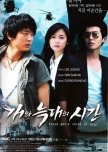
A spy drama right from the start
"Time between Dog and Wolf" is a KDrama from 2007. But don't worry, the series still knows how to grip today. (I don´t even dare to imagine what a terrific spectacle the KDrama would be, if it would come along in the style of 2020 KDrama cinematography...)The story starts - as so often back then - with the childhood days, e.g. the small and big traumata from that time. The entanglements are laid out and there's a lot in it Makjang-wise. However, it is not your typical makjang, The story is exciting, has a good pace and the shadowed complexity makes it difficult to see through. "Time between Dog and Wolf" is a spy drama right from the start and leaves hardly anything out.
The title sums it up quite well. Actually, this refers to the Latin metaphor "Inter Canem et Lupum" - between dog and wolf. In the evening twilight it is difficult to distinguish, so to speak, whether a wolf or a dog is standing in front of you, although you can just about make out that it will be one or the other. It's not pitch black yet.
However, this expression does not only refer to the twilight, but also contains another metaphorical allusion: This is the time when the wolf goes hunting and the dog seeks its bed... Who stands before me, though? Can I trust?
Thus the 16 episodes consistently maintain their twilight... Wolves (mainly) and dogs (a few) cross paths. Sniff each other. Fight each other. Join together to form a pack. Are hunted and hunt. Give themselves away. Make up for it. The one. The other. And others again. On top of all that, love puts plenty of salt into the wounds.
Ultimately, the symbol is even suitable for this KDrama in a third respect. In addition to the topics 'distrust/deceit', 'hunter/hunted', there is also the fact that both dogs and wolves are extremely social pack animals...
This is a KDrama that has a lot to offer in terms of exciting and moving entertainment. Lee Joon-gi shows edge here even at his younger age. But all of them express their emotions with some intensity. This does not go bye unnoticed.
The fact that a considerable part of the action takes place in Thailand also brings unexpected exoticism into the scene, which doesn't hurt.
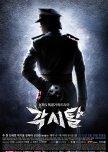
Epos, drama & national frustration with impact – about the birthing era of Korean nationalism
"Bridal Mask" is a South Korean variety of Zorro - in this case hiding behind a historical Hahoetal ceremonial mask used in Korean tradition for satirical theater and shamanistic rites. The avenger of Japanese oppression hides behind the classic mask 'Gaksital', which symbolizes an innocent bride.This brings us to the central theme around which the dramaturgical web was spun: Korea's time under Japanese protectorate (1905-1910) and the annexation as a Japanese colony that followed a few years later (1910-1945). In this context, this KDrama has a lot to do with national self-image of the Korean people, which is still formative today. (If you are interested: See Side Note below.)
Accordingly, "Bridal Mask" was very successful as a KDrama and was extended by 4 episodes due to its success.
"Bridal Mask" is about the desperate attempt of the oppressed population to counteract the notorious oppression of the Japanese tormentors. As the story progresses, the rather inexcusably conformist anti-hero becomes the avenger of the downtrodden, whereas the once benevolent, noble, antirassist teacher becomes the unscrupulous avenging angel. The daughter of a Korean resistance fighter provides explosive fuel, turning best friends into bitter opponents and rivals for the heart of their beloved. Everything becomes dramatic in the highest degree - the romance, the bromance, as well as the resistance struggle against brutal oppressors, with or without bridal mask.
'Gaksital' squeaks into the most diverse excesses of Japanese tyranny, above all: torture as a common method of interrogation. The hero also thwarts the insidious with false promises recruited young women as sex slaves or comfort women for the Japanese soldiers. Finally, by his activities his compatriots are also encouraged to engage in civil disobedience.
The tyrannical, ruthless attacks of the colonial masters are historically documented. Active resistance from the population as well. However, the actual plot of the KDrama is completely fictitious: A Zorro-like swordsman behind a traditional bridal mask is not known. Also, at the time of the Japanese invasion, Joseon was already severely weakened politically. In this case, the assassination of the head of state is poetic liberty. (At the time of the emperor´s actual death in 1919, the country had already been a colony for 4 years.) Finally, the secret organization of the ´Kishokai´ and their vision for a greater Japanese empire are fictitious. This Kishokai did not exist. However, there is a kernel of truth in it, because ultra-nationalist secret societies, especially those associated with Japanese military, apparently existed actually.
Overall, the K-Drama brings a black chapter of painful Korean history with epic impact and highly dramatic emotional entanglements back to life. Eventually, the memory is perhaps still so painful, because it wasn't all that long ago. To date, there has been no reparation, remorse, or at least acknowledgment from the Japanese side for the suffering inflicted.
Japanese colonial rule is inseparably interwoven with the very special Korean national pride, because this period marks the birth of Korean nationalism in the first place. And the KDrama builds on that. "Bridal Mask" in that sense is first and foremost a highly Korean production for a Korean audience. (Nevertheless it is obviously gripping for an audience with other national backgrounds, too.)
By the way, it may also be no coincidence that the series aired on TV in 2012, when the Korean government first formally asked Japanese Emperor Akihito for an apology...
----------------- SIDENOTE: --- Romantic Korean nationalism ---
Whether Goryeo or Joseon, since the tribes of the peninsula were united under one ruling dynasty, the people lived largely introverted and rather isolated from the rest of the world until the late 19th century. Here and there the borders have always had to be defended against invaders or retaken, but the people on the peninsula had nevertheless remained adamant and had not actually actively mixed with others. Today, there is often talk of 'pure ethnic blood', which provides the breeding ground for a more romantically (vs. civic) tinged national identity: A Korean usually feels descended directly from the original ancestors. Consequently, a Korean will typically identify first with his/her ethnic roots and only then, at some point, as a citizen of the Republic of Korea.
This very special national identity was directly born out of the developments associated with the opening of the country and an increasing international presence at the end of the 19th century. On the one hand there was hope for flourishing trade and technical innovation, on the other hand suddenly the USA, along with China, Japan and Russia, also wanted a piece of the pie and - more or less aggressively and consistently - took advantage of the opportunity and sometimes also inexperienced naivety of Joseon. As a result, resistance formed and the nationalist struggle for independence was born. It was necessary to use all conceivable means to preserve the nation´s autonomy and to protect the heart of Korean culture from invasions and encroachments by foreign nations. Particularly, resistance was directed against Japan's ruthless interventions in robbing the Korean people of their language, their own names, their religion and their dignity. Japan's declared goal was to discriminate against the Korean people and to assimilate them by any means (... and Japan wasn´t even squeamish with its own civilian population, being known for its brutality...).
At that time, Japan had deployed an omnipresent, almost overwhelming military and police presence that can hardly be compared with European imperialism as we (i.e. Europeans, as I am) know it. Hardly a day went by when the invaders did not have direct, mostly deliberately humiliating contact with the civilian population. So 4 traumatic decades can become a very long time...
This national frustration, pain and anger is still formative in the collective emotional memory. With "Bridal Mask",this receives a contemporary emotional safety valve in KDrama guise.
-----------------------------------------------------
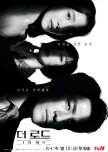
It´s opaque and rather gloomy, venturing to juggle shadow rather than light
"The Road: The Tragedy of One" is based on a (Japanese) novella by Rintaro Norizuki with its spotlight on the higher end of high society. The KDrama "Mine" from the same production year, which is located in a comparable segment at the top of the social pyramid, chose rich bright colors and extravagantly shimmering robes amidst glitz and glamor as the backdrop for a study on decadence and greed. In contrast, the TV production "The Road: The Tragedy of One" makes no attempt whatsoever to immerse human abysses in a colorful light that is somehow aimable and pleasently digestibility. No. This KDrama has a rather gloomy side to it. It´s opaque. Outrageous.You may vainly search for anything virtuous here. Let alone family values, especially when it comes to raising children. People mysteriously die. There is crime. Corruption. Affairs. Cowardice. Selfishness. There is (almost) nothing left of high moral standards. The series is heavy opera. Yet, excellently casted throughout. Everyone is doing their best. Still, whatsoever, it's not nice to look at. If the human ugliness is shown all too ruthlessly... who should one identify with? You have to delve far into your own abysses to sympathize and feel with the protagonists... (maybe one of the reasons, why the viewer ratings aren´t quite balanced to the true quality of the show...)
In any case, the KDrama is thrilling in its own pace and style. There are plenty of secrets throughout. You get Makjang, too ... obviously it can always get worse... (KDrama somehow always is great at drama!) It's opaque up to the end. The story takes its time to unravel the tangled threads. The screenplay is particularly atmospheric. Eventually, more of a trip into darkness. Literally (i.e. optically), too. I would call it an experiment in the latest KDrama Orbit, that dares to juggle shadow rather than light and ventures to tell a story without wholesome, easily digestible sweets.
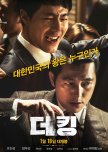
A man and his personal story of greed - leading into the repulsive quagmire of a corrupt network
In 2017, "The King" is among the top ten movies in South Korea. The story is a prototypical example for a few extremely powerful men(!) manipulating crime, business & politics within South Korean society. In an idiosyncratic style, the movie conveys an insight into an repulsive quagmire of corrupt networks that run through all social classes. It is about the particular imbalance in the realms of public prosecutors and judiciary, which in the 1990s and 2000s was still massively determined by bribery.The protagonist tells his personal story of greed (it is always people behind a system...) This is about his climbing to the top and the correspondingly deep fall. He accompanies the events from the off while the story unfolds before the eyes of the viewer in trenchant, impressive scenes. At first, you have to get used to this particular style, but the acting, pace, rhythm and camera nimbly catch the audience by the hand and won't let go until the end.

Although ´makjang´ was taking it almost over the edge of the bearable, I had to stick with it
A classic among KDramas. The dramaturgical moves may sometimes be predictable - the evil stepmother and such... However, there is this passionate play of truly dedicated actors . ...and a groovy interpretation of Ave Maria, that burns mercilessly into your heart and ear. Although makjang (Mean! Bitchy! Malicicious!) was taking it almost over the edge of the bearable, I had to stick with it. Some scenes still have an impact on me years later.Human abysses are presented in abundance. In addition, dealing with different facets of true love. An unforgettable piece of KDrama, for those who can never get enough drama. Here you can emotionally let off steam on the backs of the protagonists. For everyone else it might be a bit too much in some places.
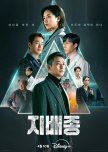
Crisp and tasty KDrama - revolving around some hot topics that one might rather want to call sci-fi
Intelligent, sharp, with strong characters. A crisp and tasty KDrama. “Blood Free” got me immediately - with an original hook, set within a gripping milieu, topped by thoughtful demeanor of interestingly authentic protagonists and splendid casting.Of course, the interfering natural interest of those in power (who obviously can never keep their hands off) is not at all surprising. Yet, the processing of some rather hot contemporary issues was presented in a refreshingly concise manner. Including topics that one might call a dream of the future... A bit far-fetched here and there? Perhaps. Nevertheless, often enough well grounded in common sense.
I assume there could as well be a second season... because the end doesn´t necessarily have to be the end, does it?
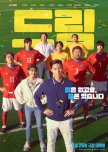
The KMovie is carefree, harmless and heartily. However, it is not trivial.
"Dream" is about team spirit as a positive force that allows a group to excel itself. The KMovie is carefree, harmless and heartily. However, it is not trivial, as it sides with those commonly referred to in society as the weak.You shouldn't expect too much, then everything works quite well. Obviously, IU and Park So-joon are the show's carthorses. But that doesn't do justice to the rest of the cast, who all contribute their unique esprit. “Dream” comes across as teamwork through and through.
Although it was filmed at original locations in Budapest, somehow, in my opinion, the casting (unfortunately) often enough doesn't work so well, when Korean productions are dependent on actors from different origin. For whatever reason. Even if it's only supporting roles or extras in this case, they seem to be rather amateurish. Hm.
All in all: “Dream” is a KMovie for high spirits and light fare. Not intrusive. With a few flaws here and there. However, also with some well-placed, wonderful and valuable messages in passing.
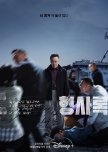
Solid crime drama! Gripping! About an aged, cynical cop struggling in a dark, grim man's world
"Shadow Detective" offers solid crime thriller quality at a high level - gripping, dense, with South Korean Look&Feel!As a Disney production, the series was produced explicitly for the international streaming audience. Accordingly, within compact 8 episodes the KDrama presents itself rather slim in terms of some characteristic dramaturgical, Korean-style storytelling elements. Nevertheless, a profound script, the committed cast and witty camera manage to create an enormous intensity and three-dimensionality.
"Shadow Detective" takes the audience firmly by the hand. The story does not have to come up with an excess of violence (as is so often the case with international, more masculine orientated streaming productions). I should mention, though, that it's primarily about older men in a man's world - and it's rather dark, grim, cynical.
Against the almost self-evident background of an almost unassailable, corrupt shadow world, the story focuses on the protagonist's inner struggle to do a reasonably good job as a detective despite the ailing system (... and to cope with aging).
Another season has already been announced.
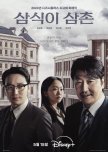
Great performance & complex narrative re. challenges in politics during dreary SK post-war decades
"Uncle Samsik" offers a quite interesting narrative of the complex connections between party politics and the even more crucial backroom politics during South Korea's first republic (1948-1960). The KDrama is primarily set in the run-up to the turbulent events and nationwide demonstrations that led to the resignation of the first President Rhee and the founding of the second republic. However, the nation that had hoped for real democracy and prosperity stumbled into a third one just three years later through a military coup. Although this brought the hoped for prosperity via totalitarian capitalism, it was still far from real democracy...The story of the KDrama is based on historical events, themes and people of that time, but is ultimately fictional - even if historical film sequences are occasionally interspersed as part of the April Revolution. The focus is on Uncle Samsik. For all those, who don't know much about South Korean history, Uncle Samsik is the emotional reference figure and dramaturgical bridge that holds all the politically complex threads together. Even without prior knowledge, "Uncle Samsik" offers an exciting, haunting political drama that takes place in the post-war years. It is in particular thanks to the passion of the great actors who manage to captivate the audience with comparatively 'dry' fare. It is advisable to watch the episodes consecutively so as not to lose the thread.
With a fictional plot the well-known historic events and what actually drove the political actors of that time are portrayed from different perspectives. Thus they are shown as multifaceted people with complex motives and stories. Political calculation becomes tangible through relationship dynamics and formative personal experiences. What created the conditions for that dictatorial regime and its totalitarian capitalism to torpedo South Korea into dazzling prosperity - the needs, hopes, ideals and concerns underlying the political actors - are being filled with life. And at the same time also what the young democracy still has to gnaw at today - authoritarian directive, opaquely networked and strictly hierarchically structured backroom politics.
The time in which the KDrama is set is marking the initial struggle to set the course for 'right' politics and a democratic political culture to start with. You have to keep in mind that Korea has not yet been able to gain much experience with modern, international politics and economic policy on the world market. Until the end of the 19th century, the Joseon Kingdom had isolated itself from the rest of the world and concentrated on itself. Western modernity and international influences increased during the early 20th century, especially while the Korean peninsula was a colony of Japan. The guidelines for political autonomy and independent parliamentary politics were only set in the course of the founding of the Republic of Korea as South Korea in 1948. And even then, the USA kept a close eye on the young republic. The people in South Korea had not yet been able to seriously experience themselves as political mature people of a democratic country... The south, by now isolated from its rich in raw material and industrially well developed north, was at that time one of the poorest agricultural countries in the world.
Uncle Samsik vividly depicts the conflicting feelings in the country. He represents the prevailing longing for wealth... or simply for three meals a day. Uncle Samsik's nickname already reflects what he stands for: sam (eum)sik = three meals. He (as a good uncle) grants this to his people. So actually this very basic human need was the top priority in those politically turbulent years. Hunger and poverty shaped everyday life for the many. Democracy as a political ideal may sound good, but it doesn't fill your stomach. Samsik cares about people. His political goal is to use all possible means to support those politicians who have a solid concept and can bring the country to a point where the people will soon have enough to eat. The way to get there: to consistently boost the economic power of the economically weak country (compared to the north) and thus create appropriately paid work whose salary is enough to provide for the families... even if that might imply that the people´s hope for true democracy still has to wait a bit longer...
So would I recommend "Uncle Samsik"?
Yes, but...
It's one of those things with historical dramas that deal with Korea´s recent post-war history (and with the KMovies about the first post-war decades, too... you have to want to see it. Colours, light, selection of protagonists - this is often enough inevitably not a treat. Colorful robes that were still common in Joseon times are rarely seen anymore. After the Japanese colonial period and at least since the influence of the USA in the wake of the Korean War, fashion has been completely westernized. This makes the production design comparatively rather dreary - dark suits, ties and plenty of scenes inside or in the dark. It is about scenes inside offices, hotel bars, conference rooms and bunkers instead of lushly planted palace gardens, picturesque bridges, colorful pavilions and pagodas, or the shaded, meditative palace walkways - it's all history. Politics by now happens behind closed doors. If suitable, it might sooner or later end up on the streets, too. Female characters with impact are also rare - gone are the lively days of palace ladies, servants and princesses, scheming dowagers and queens or spying gisaeng... Instead, there are lots of serious men in their (as I mentioned before) dark suits, preferably smoking and debating or giving orders in back rooms. Politics is a man's business - a power struggle that is eventually resolved with the help of thugs and cloak-and-dagger operations... (After all, women's power is at least trying to carve out some space in "Uncle Samsik"...)
In short, the setting is rather dark, complex, even complicated - and ties-heavy. Be aware.
Apart from that, "Uncle Samsik" is really well done. Vividly played and thematically differentiated, the KDrama brings those dreary, sobering post-war decades in South Korea to the international DisneyPlus audience, presenting it as a time that, despite all the prevailing corruption, arbitrariness and obedience to authority, was also characterized by a lot of idealistic passion and political hope. Once again, high-end historical drama à la KDrama...
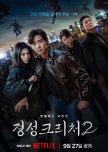
The back-up story would have been there, but the willingness to actually tell it was limited
So here it is, the second season. The historical coat is stripped away and the story transforms into a modern thriller, the theme of which revolves around a horror that only humans are capable of.Pleasing and pithy: Some script scenes from the first season were hinted at and entertainingly mirrored in the present day mise-en-scene. That´s fun to watch. The confrontation with the longing for power and immortality also has its moments and insights. Additionally: the leads give their all, again.
On the other hand, someone in production probably didn't really feel like it anymore... There is only minimalist suggestion of what may have happened during the past 80 years. This could actually be a substantial story, yet they are not going to tell us. This serves merely for shaping a coarse (albeit promising) framework, unfortunately remaining pretty lean. Thus it is raising more questions than it feels like answering, its only mission being turning the two leads though the mill of horror once more. Accordingly, the story almost constantly takes place in gloomy night, dark rooms or sinister underground.
For season 1, the dramaturgical technique of hinting at historically shaped, individual fates may have had an effect, enhancing identification with characters. For the second season, continuing with this method only works to a limited extent, because by now we are already closely identified with them.
All in all, the second season comes across somewhat indecisive. The back-up story would have been there, but the willingness to actually tell it was limited. On the other hand, it is still fast-paced and emotionally dense. Nevertheless (at least for me) it is somehow unsatisfying, almost unnecessary. Second seasons for Netflix-KDramas haven´t really convinced me yet. Neither does this one.
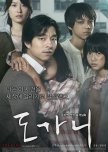
Outstanding KMovie. Daunting. Blunt. Galvanizing. Impressively staged. Yet rather painful to watch
"Silenced" is a 2011 movie production. The KMovie is based on a book and this in turn is based on a true story that happened at Gwangju Inhwa School. For a change, it's not about bullying among students, but about repeated sexual abuse by teachers and school staff against their underage wards. In this case they were also deaf."Silenced" is an outstanding, moving film production - in several respects.
The story is impressively staged.
Horrendous abuse. Repulsive in its unbelievable brutality. Blunt.
There are the children left at the mercy of pitiless adults, left alone in their helplessness - speechless in every respect. What else can they hope for in this world?
There are the adults - the perpetrators and also those who knowingly close their eyes to injustice for their own benefit. (I have no idea what they do with their ears and their conscience, though...)
And there are the two protagonists - neither of them exactly the epitome of promising heroes...
With a top-class Gong Yoo, who personally and actively supported the filming of the story. He read the book during his military service. But it was only later that he found out that these were true events. He met with the author and the idea for the film was born. He embodies the main role of the initially quiet, perhaps somewhat wimpy, indecisive teacher; a widower and a father who is absent due to his job and who relies on his mother's support to look after his sick daughter. Yet, it is precisely this tangible, silently screaming human weakness of his character, his uncertainty in dealing with the unfathomable, his own initial shock of cautious, perhaps naive reserve that contributes to the authentic strength of the KMovie. (If the world were full of determined, courageous heroes, then there would be less such terrible incidents, repeatedly taking place over the years with impunity - like those in that South Korean boarding school for the deaf in Gwangju...or that Odenwaldschule in Germany, or far too many other schools worldwide.) The heroic in our protagonist must first be born and then grow. This is a process. Step by step, stumbling, helpless, hopeful and yet again discouraged, but then unbendingly getting up again - and finally on a path of no return...
The KMovie “Silence” is shocking.
Grim. At times it may be reminiscent of a horror movie like 'The Shining' or something similar. The story is daunting. Its social dimensions are sobering. There are hardly any words for this parallel world. What people are monstrously capable of... and then also: that time and again, in the face of blatant injustice, people let themselves be bought and silenced for their own benefit.
Nevertheless, the message at the end is (I think) quite wonderful: "...it makes me think, that the reason we are fighting so hard is not to change the world, but instead to not let the world change us." Resistance takes on an encouraging new dimension that doesn't have to give in, even in the face of a Goliath. Great!
The KMovie was and is galvanizing.
“Silenced” shook up the masses in 2011 in a spectacular way. Over 4 million horrified cinemagoers saw the movie, which was number 1 on the South Korean cinema charts for three weeks in a row. The book by Gong Ji-young was storming the bestseller lists.
What the regular jurisprudence was previously unable to do was actually subsequently made possible by the pressure of the shocked masses: 1.5 months after the KMovie was first broadcast, the so-called 'Dogani Law' was passed. (Dogani = "Crucible", the title of the book and film). Since then, the new law has suspended the statute of limitations for sexual abuse of people with disabilities and for rape of minors under the age of 13.
Therefore, some of the perpetrators at that school in Gwangju who had previously gotten off with lax sentences were subsequently summoned again and sentenced to long prison terms and/or electronic ankle bracelets.
Lastly, at least THIS school was closed.
Respect!
For taking up the issue.
For not giving up and thus using other means (a movie on the big screen).
For the sensitive handling of a tough topic.
For the often extremely unpleasant, painful, however nevertheless coherent film adaptation of a fantastic script.
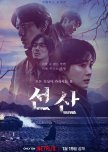
Slow paced. Gloomy. Solid crime thriller, set in a perhaps somewhat peculiar milieu
“The Bequeathed” is a dark and gloomy crime thriller that is set on the fringes of madness, obsession and shamanistic practices, taking place in a remote backcountry, where ordinary people have for generations been burying their dead under green burial mounds. It's not a horror story, but rather a solid, yet slow paced crime thriller, set in a perhaps somewhat peculiar milieu.There are only 6 episodes. Nevertheless, with only a little for the short time, comparatively much is revealed about a wildly mixed bouquet of different characters. A hodgepodge of astonishingly vividly drawn figures cross paths, take their space quite naturally and leave their traces with the audience. Against the background of the ongoing investigation into a series of murders, they all get the chance to clear up what they have (emotionally) left behind ... and move on.
I would not have expected this. Therefore I was positively surprised.
Authentic performance. Amazingly complex with haunting cinematic implementation. Dense. Suspenseful.
Nonetheless consistently gloomy. (It does get a little brighter towards the end though...)
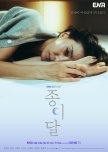
More than a remake. Delicate timbre. Powerful. Reckoning with the void of a luxury-branded world
"Pale Moon" develops a particularly delicate timbre. Fine personality portraits, none of them smooth and pore-deep clean, but rather inwardly crumpled people with dreams and weaknesses, people who sometimes make questionable decisions, who don't stick to the rules, who succumb to the temptation to take the chance to realize their dreams.A little 'noir' here and there. In any case, emotionally dense. Unexcitedly emotional. Quiet and yet powerful.
The KDrama is based on a Japanese Original (Mitsuyo Kakuta), which was successful as a series and movie, too. This is now a South Korean remake. Apparently, Kim Seo-hyung was immediately (after she saw the original in 2015) determined to play the female lead in any potential South Korean remake. You can tell, she is breathing her role.
The original novel is about the embezzlement of bank funds as actually happened in Japan. In South Korea, the list of embezzlement in billions is also long and the remake is accordingly well placed.
However, the South Korean remake is about more than misappropriation of wealth on a large scale. This is generally about lies, deceit and deception - even on a smaller, manageable, interpersonal level. However, it is also about human vulnerability, the cracks in the facade.
The story unfolds against the background of unstoppable consumption - a veritable frenzy of consumption that has long since left any connection or grounding behind. A life-style in a parallel world, that only a few can really afford. This world of luxury, which initially seems appealing, develops an intoxicating, addictive character and ultimately catapults itself into the void. What remains when the lover equips the lover with the designer goods from head to toe, from the car to the house including the interior and the laptop, too? Alert, alert: the luxurious world of matter - initially well camouflaged as the lifestyle of your dreams - becomes an ugly parasite that feeds on substantial emotions, liveliness and passion, but in the end leaves nothing behind...
In the field of tension between the dreary normality of a boring everyday life that is perhaps pimped out on the outside, but emotionally rather empty, almost everyone here is willing to deviate from the path of virtue in order to get a piece of the promisingly dazzling consumer cake.
Nevertheless, the story also tells of the sincere moments of perception and recognition of unsightly vulnerability. These are the moments when sincere encounter happens to become possible. On the outside, these are not the nice, shiny TaDa moments, but on the inside they provide light and warmth, they nourish the soul, like water making flowers bloom. Moments that cannot be bought with money. Moments that are among the most worthless in the dazzling world of consumption, shunned, despised, marginalized, excluded.
In this way, "Paper Moon" is an intelligent approach of reckoning with the consumer-driven social reality in which 'appearance' takes the place of 'being'. Quietly and constantly the KDrama is reminiscent of the basic in human, which has nothing to do with staged perfection, but rather with irrational impulses and irreconcilable paradox. At most, beauty in ´being human´ unfolds when weaknesses become strengths, when ruptures make the whole, when betrayal opens the door to freedom, when loss becomes the gate to abundance, when I find myself by losing myself, etc.
Since we are all human, we can remember (that we are like that too) and empathize and accept ourselves (and others!) even in our (their) 'ugliness', 'despair' and 'failure'. That makes life truly valuable and remains as a valuable experience, even if any material value has long since disappeared.
------------------------------------------------------------------------------------------------------
SIDE NOTE: -------- 'Paper Moon' vs. 'Pale Moon' ----------
The original title "Paper Moon" was for the international title particularly changed from "Paper Moon" to "Pale Moon" in order to create a certain degree of selectivity from the Japanese original. The story may be remade, but it's retold in characteristic korean-style. Successfully so. And if you like, the changed nuance in the title already testifies to a finely nuanced, additional facet within the KDrama production.
The term "PAPER MOON" refers to a fake, oversized crescent made of cardboard, which became fashionable at the time, with the advent of photography, as a specific variant of (cheap but effective) portrait background. At fairs, etc., photographers as a special gag offered the cheerful visitors unforgettable portrait photography in front of an artificial crescent moon made of cardboard. The happy couples (but also everyone else who had their picture taken) floated optically above the clouds, removed from everyday life, yet oh so close to the (artificially fake) sky... A reMINDer, documenting a very special moment.
Since then, the meaning of the ´paper moon´ generally refers to an object with the help of which a void is filled with fictitious, purely optically reality – a make believe. However, the emptiness is still there. The symbol, enriched with meaning, inspired many a great work. One of them is the piece of music "It's only a Paper Moon" (originally "If you believed in me"), which summarizes the basic idea or the basic feeling in a striking way - as a tightrope walk between hope and hopelessness...
"Say, it's only a paper moon
Sailing over a cardboard sea
But it wouldn't be make-believe
If you believed in me
Yes, it's only a canvas sky
Hanging over a muslin tree
But it wouldn't be make-believe
If you believed in me
Without your love
It's a honky tonk parade
Without your love
It's a melody played in a penny arcade
It's a Barnum and Bailey world (=circus attraction)
Just as phony as it can be
But it wouldn't be make-believe
If you believe in me"
...The unreal reality, the deception, the lie, all of this could be true if only one can convince the others that it is so.
"PALE MOON" on the other hand refers more to the real, pale (full) moon in the night sky, which is repeatedly staged in this KDrama. It's not dazzling like the radiant, all-illuminating, blinding sun, and not loud and spectacular like fireworks, (and not as big and dominant next to me as a paper crescent moon). The pale (full) moon only shimmers in the dark hours of the day. It may light the way and also cast shadows, yet from my perspective it is just tiny and far away.
Nevertheless, despite appearing almost fragile and delicate, is solidly stands there like a vague, quiet, soothing reminder of something truly beautiful and valuable. Something that is there repeatedly, with beautiful regularity - remaining, just being, no matter what. Something to relate to. Far away it may be, yet emotionally quite substantial - and thus close to the HEART.

You can look forward to a spicy mixture of fun and seriousness
For all the law-and-order series that the KDrama Orbit has so far produced in 2022, Law Café romps on the more witty, hilarious rom+com side. A web comic served as a template.Nonetheless. For all its playful wit, it is also a production that has its serious moments as well. In the background wafts an ugly (as usual) Jaebeol mess at the expense of the honest simple people. In the foreground, the protagonist fights for the rights of ordinary people with a lot of passion, intelligence, courage and the active support of old and new friends as well as her (after all) love interest. The legal cases dealt with are close to everyday sorts of topics and provide an up-to-date overview of perennial issues such as bullying, child abuse, sloppiness in construction, etc.
The idea of setting up a Law Cafe away from the usual law firm business is unique. There visitors can get professional legal advice in addition to barista coffee in a comfy atmosphere. All of the characters are originals, and their quirks and idiosyncrasies are cheerfully staged here and there. You can literally feel the underlying comic.
The focus is on the 'four-dimensional' personality of Kim Yu-ri. (4D in Korean standards means a particularly eccentric, freaky, quite special character. 4D is generally considered a compliment, especially in the teen and KPop milieu.) She meets the ingenious, former public prosecutor Kim Jeong-ho, her school friend from back then and also son of a rich family. He lately indulges in idleness, enjoys his life in tracksuits - as a writer and real estate owner. There's some harmlessly sweet, romantic flirtation of the Korean decent kind, but also concentrated intelligence and creativity in solving some intricate cases. The evil, powerful business bosses and their crazy doings find an appropriate expression in the phrenetically perfidious, exalted, almost insane boss of the Dohan construction company.
Bottom line: You can look forward to a spicy mixture of fun and seriousness. To a love story. To a cast in good mood. To lively entertainment. However, I have to admit that 2 (sometimes 4) episodes a week was quite enough for me. I could easily wait for the new episodes. Thus, I wouldn't call the KDrama gripping. It is rather shrewed and witty in places. Rather harmless. However, it is not completely banal.
Overall, special care was taken to ensure that everyone in the audience understood the seriousness of the legal cases being dealt with. The deliberately sincere, almost missionary approach to e. g. the topic of sexism and "Yes means Yes" is remarkable. The KDrama obviously wants to be more than just good entertainment. And I think that the production succeeds in this mission quite well: A rom+com K-Drama, derived from a comic, that gently but firmly grabs society by the collar, in a good mood and optimistically presenting creative ways, how despite all the existing corruption business surrounding the machinations of the powerful, justice could actually be possible. It wouldn't be due to the law, because that would at least actually be available...


 9
9 38
38 15
15
















